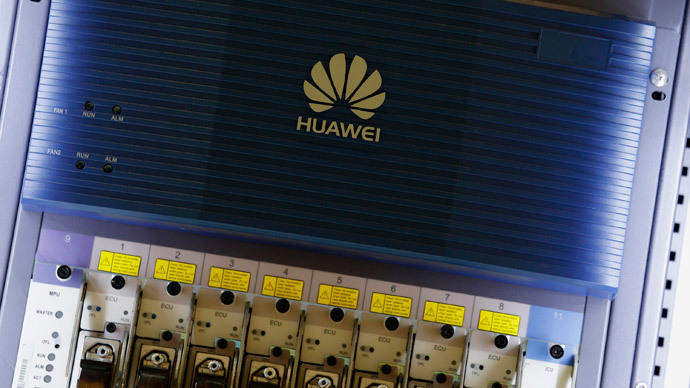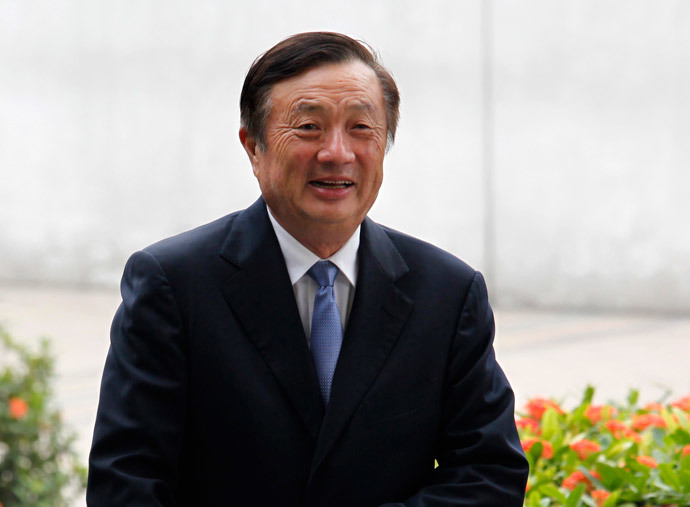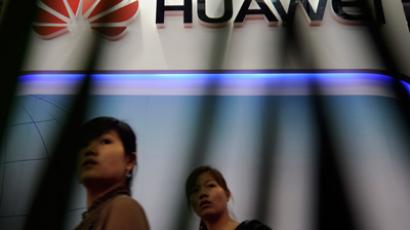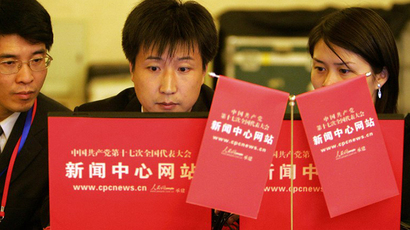NSA spied on Chinese govt and telecom giant Huawei - Snowden docs

The US National Security Agency (NSA) has spied on Chinese leaders and businesses, new Snowden docs indicate. Yet it seems that China’s telecom giant, Huawei, was the core target for the NSA campaign in China.
The new portion of revelations from the former NSA contractor Edward Snowden, published by Der Spiegel and The New York Times, has exposed the great interest of the US secret service in obtaining data from China.
It has been revealed that America’s NSA has multiple targets in the world’s second largest economy, among them the Chinese Trade Ministry, national banks, leading telecommunications companies and the country’s top officials, like former Chinese President Hu Jintao.
But even against that background, one Chinese company received the special attention of the NSA: it is Huawei Technologies, the world's second largest network equipment supplier, which employs 150,000 specialists around the world and can boast an impressive $38.6 in annual revenues.
The company produces a large number of electronic products, among which are cutting edge network equipment, such as WLAN routers and fiber optic hardware. For the America’s NSA, which is craving total domination in global cyberspace, full control over these technologies is decisive.
Back in 2012 Congress called on US firms to avoid doing business with the Chinese telecom giant snapping at the heels of America’s Cisco Systems Inc., the world’s #1 telecom equipment producer, due to a national security threat the company posed, according to them. Another Chinese telecom giant, the ZTE Corp, was also named as a threat to US security.
The documents dug up by Edward Snowden have exposed that three years prior to the US boycott of Huawei, the NSA launched a major cyber offensive against the company, an operation dubbed ‘Shotgiant’, which involved the FBI and close contacts with the White House intelligence coordinator.

The 2010 dated NSA document cited by the New York Times claims that the major goal of the operation was to find proof that Huawei is closely cooperating with cyber warfare units in China’s People's Liberation Army (PLA), which expand the PLA’s electronic warfare and SIGNIT (Signals intelligence) capabilities.
The NSA documents do not contain information as to whether proof of Huawei assisting the PLA has been found as a result of the special operation.
The NYT reports that the NSA is constantly tracking over 20 groups of Chinese hackers, more than half of them believed to be PLA and Navy cyber units.
“If we can determine the company’s plans and intentions,” an NSA analyst wrote back in 2010, “we hope that this will lead us back to the plans and intentions of the PRC (People’s Republic of China).”
It has also been revealed that in early 2009 US government hackers succeeded in infiltrating servers of Huawei’s central office in Shenzhen, China’s ‘industrial heart’, and straddled the company’s communications.
The NSA gained access to an unprecedented goldmine of valuable information.
Describing the breach of the Huawei servers, one of the NSA secret internal documents from the collection of Edward Snowden maintained that “We currently have good access and so much data that we don't know what to do with it.”
The NSA was able to read Huawei’s email archives starting from January 2009, including those of the company’s top executives, CEO Ren Zhengfei and Chairwoman Sun Yafang, reported Germany’s Der Spiegel.
The NSA downloaded documentation on 1,400 major company customers, along with engineering documents on Huawei products, which ended up with the US secret service getting access to the individual source code of any Huawei products.
The breach of the source code meant that the US was able to get easy access to any network using Huawei hardware employing “back doors” in its equipment’s software.
“Many of our targets communicate over Huawei-produced products,” the NSA document said, adding that in order to “gain access to networks of interest” around the world “We want to make sure that we know how to exploit these products,” the document said, specifying that the agency was interested in “high priority targets — Iran, Afghanistan, Pakistan, Kenya, Cuba.”
According to the NSA, a potential threat posed by the widespread use of Huawei equipment is so “unique” that “the intelligence community structures are not suited for handling issues that combine economic, counterintelligence, military influence and telecommunications infrastructure from one entity.”

The NSA expressed concerns that the Chinese are not only controlling an increasing amount of world data flow, a segment previously dominated by Western companies, but are effectively opening up new technology standards determined by US business, thus making American and Western firms “less relevant”.
Huawei has already issued a statement condemning the US’s activities and double standard policies towards the Chinese company.
"If it is true, the irony is that exactly what they are doing to us is what they have always charged that the Chinese are doing through us," said William B. Plummer, the Huawei's vice president of external affairs. “The information presented in Der Spiegel and the New York Times article reaffirms the need for all companies to be vigilant at all times,” he said.
“If such espionage has been truly conducted, then it is known that the company is independent and has no unusual ties to any government and that knowledge should be relayed publicly to put an end to an era of mis- and disinformation,” Plummer said.
“Huawei has declared its willingness to work with governments, industry stakeholders and customers in an open and transparent manner, to jointly address the global challenges of network security and data integrity,” said William B. Plummer, Huawei's vice president of external affairs, in an email to The Associated Press.
Following the long-ago adopted practice, the NSA has officially refused to comment on specific alleged activities of the agency.
The NSA spokeswoman, Vanee Vines, said the agency only engages “valid foreign intelligence targets in response to intelligence requirements.”
“In addition, we do not use foreign intelligence capabilities to steal the trade secrets of foreign companies on behalf of - or give intelligence we collect to - US companies to enhance their international competitiveness or increase their bottom line,” Vines said in a statement emailed to the AP.
Another NSA spokeswoman, Caitlin Hayden, commented on the issue: “Our intelligence activities are focused on the national security needs of our country.”
The revelations published by Der Spiegel and The New York Times come ahead of the six-day official visit of Chinese President Xi Jinping to Europe, where he will hold talks with EU leaders who also became victims of the NSA electronic surveillance, in particular German Chancellor Angela Merkel.
On Monday, Xi Jinping will meet with President Barack Obama in The Hague.
Also, the US first lady, Michelle Obama, is currently visiting China. Addressing an audience of college students in Beijing on Saturday, she said that open access to online information is a “universal right.”














